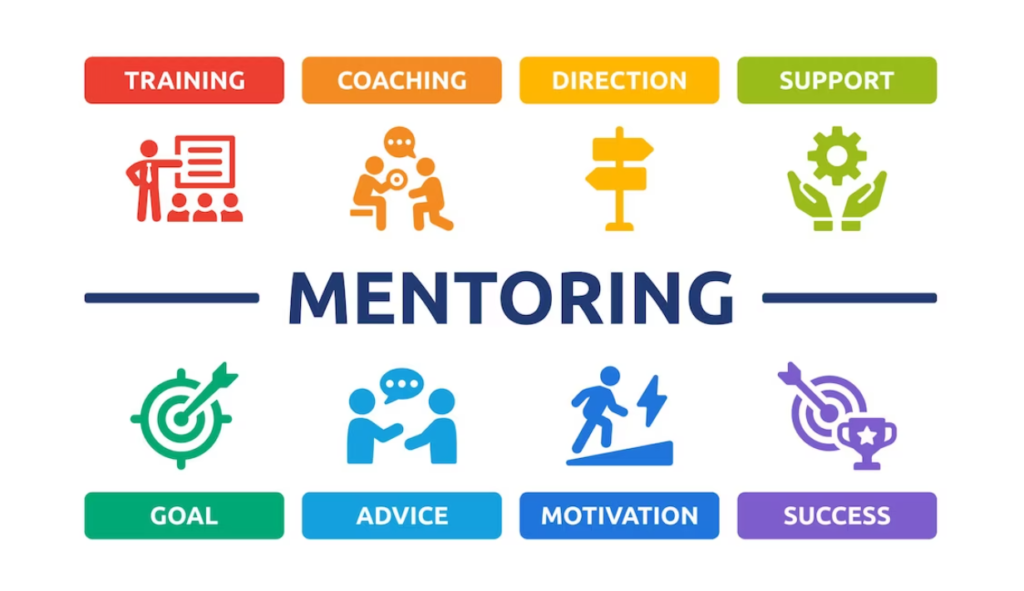Mentorship is one of the most transformative relationships in both personal and professional realms. It’s a dynamic process where wisdom, experience, and guidance from one individual help shape the future of another. The power of mentorship lies in its ability to bridge gaps in knowledge, inspire confidence, and nurture growth. This blog explores why mentorship is crucial for building the leaders of tomorrow and how it impacts both mentors and mentees.
Understanding Mentorship: A Lifelong Relationship
At its core, mentorship is more than just guidance; it’s a partnership aimed at mutual growth. It involves a mentor sharing their experiences, offering advice, and supporting a mentee in achieving their goals. This relationship often evolves, with the mentor providing support beyond career advice, addressing personal development and emotional resilience.
Mentorship is not bound by age, gender, or profession. It transcends boundaries, fostering learning and collaboration between individuals of diverse backgrounds.
Why Mentorship Matters in Shaping Leaders
The leaders of tomorrow require more than technical expertise—they need soft skills, emotional intelligence, and a vision for the future. Mentors play a pivotal role in instilling these qualities. Here’s how:
- Skill Development: Mentors help mentees refine their skills, whether it’s leadership, communication, or decision-making.
- Confidence Building: A good mentor believes in their mentee’s potential, boosting their self-confidence and helping them overcome self-doubt.
- Broader Perspective: Mentors provide insights that help mentees see challenges and opportunities from a new angle.
- Guidance During Uncertainty: Mentees often face crossroads in their careers. A mentor’s advice can be invaluable in making informed decisions.
The Mentor’s Perspective: What They Gain
Mentorship is a two-way street. While mentees benefit from guidance and support, mentors also experience significant growth:
- Personal Fulfillment: Mentors find joy in seeing their mentees succeed, knowing they contributed to their growth.
- Fresh Perspectives: Engaging with younger or less experienced individuals can help mentors see things in a new light.
- Skill Reinforcement: Explaining concepts and sharing experiences reinforces the mentor’s own knowledge and skills.
- Legacy Building: Mentorship allows individuals to pass on their knowledge, creating a lasting impact on their field or community.
Real-Life Success Stories: Mentorship in Action
The power of mentorship is evident in countless success stories:
- Example 1: A young entrepreneur struggling with their startup was mentored by an experienced business leader. With their mentor’s guidance, they navigated challenges, secured funding, and eventually turned their startup into a successful company.
- Example 2: A college graduate unsure of their career path found clarity through mentorship from an industry expert. The mentor’s insights helped them secure a role in their dream field.
Such stories highlight the transformative impact of mentorship.
How to Foster a Mentorship Culture
To ensure that mentorship thrives, it’s crucial to create an environment where it’s valued and encouraged:
- Encourage Open Communication: Mentees should feel comfortable asking questions and seeking guidance.
- Provide Training for Mentors: Equip mentors with the tools and resources needed to guide effectively.
- Formalize Mentorship Programs: Organizations can establish structured mentorship programs to match mentors with mentees.
- Celebrate Success: Recognize and share stories of successful mentorship relationships to inspire others.
Tips for Mentees to Maximize the Mentorship Relationship
For mentees, mentorship is a golden opportunity to learn and grow. Here’s how they can make the most of it:
- Set Clear Goals: Define what you hope to achieve from the mentorship.
- Be Open to Feedback: Constructive criticism is essential for growth.
- Take Initiative: Don’t wait for your mentor to guide you; actively seek their advice and insights.
- Express Gratitude: Acknowledge your mentor’s time and effort.
The Long-Term Impact of Mentorship
The ripple effect of mentorship extends far beyond the immediate relationship. Mentees often go on to mentor others, creating a cycle of growth and learning. This legacy-building aspect of mentorship ensures that its impact continues for generations.
For society, mentorship helps in developing ethical, empathetic, and capable leaders who can address global challenges with innovative solutions. It’s an investment in the future that pays dividends in countless ways.
Conclusion
Mentorship is a powerful force for change, offering a pathway to personal and professional development for mentees and immense satisfaction and growth for mentors. By fostering mentorship, we can guide the leaders of tomorrow, creating a brighter, more collaborative future.
Whether you’re looking to become a mentor or seeking guidance as a mentee, remember that mentorship is a gift that enriches lives on both sides of the relationship.

